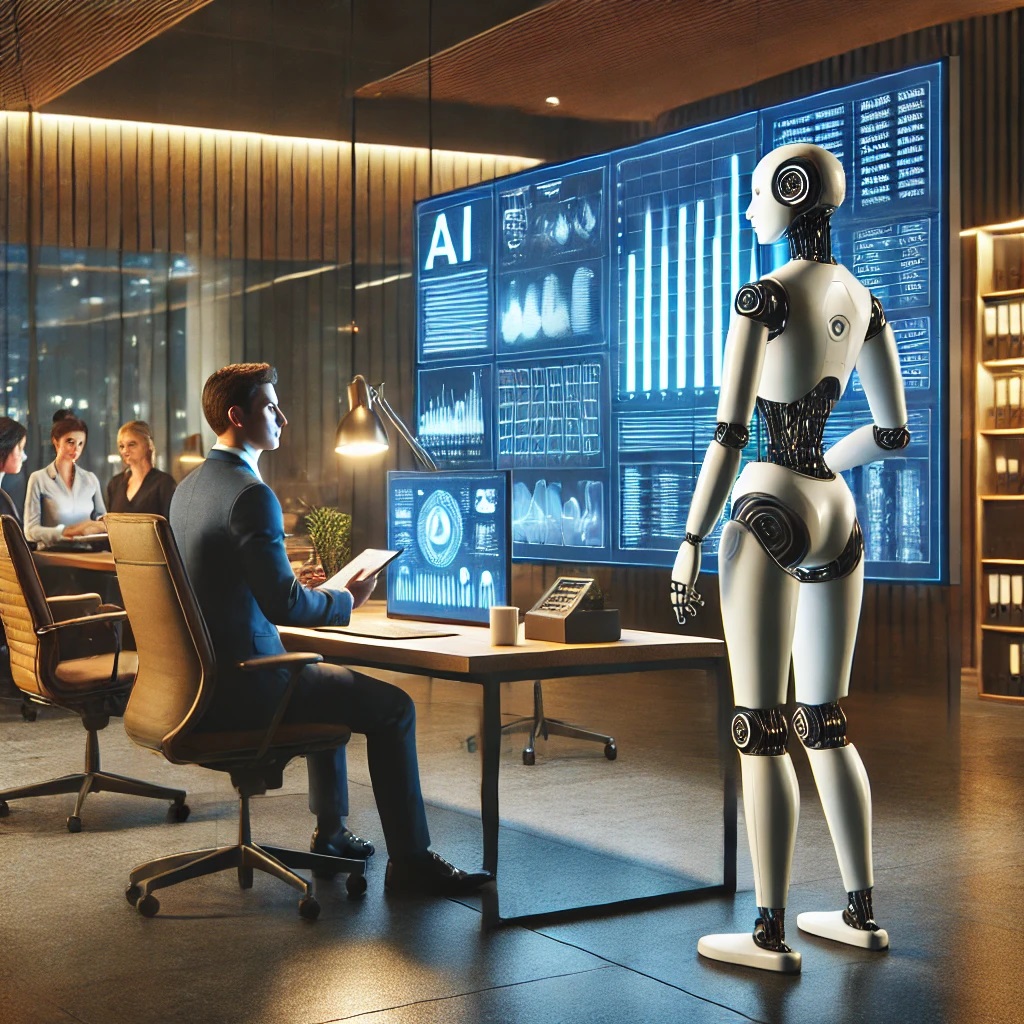Artificial Intelligence (AI) is transforming industries, automating tasks, and even creating content. But let’s be real—humans aren’t obsolete yet. AI is powerful, but it still needs human oversight, creativity, and emotional intelligence to function effectively.
Here’s a deep dive into AI-related jobs that humans can (and should) do, broken down into scannable sections for easy reading.
1. AI Ethics & Policy Experts: The Guardians of AI
Why It’s a Human Job:
AI doesn’t have morals—it follows algorithms. Humans are needed to ensure AI is fair, ethical, and unbiased.
What They Do:
- Develop ethical guidelines for AI use
- Address bias in AI algorithms
- Ensure compliance with AI regulations
- Prevent AI misuse in surveillance, hiring, and finance
Who Hires Them?
Big tech firms, governments, and legal organizations.
2. AI Trainers & Data Annotators: Teaching AI How to Think
Why It’s a Human Job:
AI learns from data, but it needs humans to tell it what’s right and wrong.
What They Do:
- Label images, text, and speech for machine learning models
- Train AI chatbots by rating responses
- Improve AI’s understanding of human language
Who Hires Them?
AI startups, tech giants, and research institutions.
3. AI Prompt Engineers: The Art of Talking to AI
Why It’s a Human Job:
The right prompt can make AI smarter. The wrong one? Garbage output. Humans are needed to craft precise prompts.
What They Do:
- Develop prompts that make AI tools generate high-quality responses
- Optimize AI-generated content for businesses
- Train AI models to respond accurately in different industries
Who Hires Them?
Marketing agencies, AI tool providers, and businesses using AI for content creation.
4. AI Content Editors & Fact-Checkers: Fixing AI’s Mistakes
Why It’s a Human Job:
AI can write, but it hallucinates facts and lacks nuance. Humans are needed to fact-check and refine AI-generated content.
What They Do:
- Edit AI-generated articles for readability and accuracy
- Fact-check AI responses to prevent misinformation
- Ensure content aligns with brand voice and goals
Who Hires Them?
News agencies, marketing firms, and online publishers.
5. AI-Assisted Creators (Writers, Designers, & Filmmakers): Creativity Can’t Be Coded
Why It’s a Human Job:
AI generates ideas, but it lacks original thought. Humans take AI-generated content and make it compelling.
What They Do:
- Use AI for brainstorming, then refine the output
- Create unique and engaging written, visual, or video content
- Develop storytelling and emotional depth in AI-assisted works
Who Hires Them?
Advertising agencies, media companies, and content creators.
6. AI Software Developers & Engineers: Building the Future
Why It’s a Human Job:
AI can’t code itself—yet. Humans are needed to develop, test, and improve AI models.
What They Do:
- Design and implement AI algorithms
- Optimize AI performance for various applications
- Integrate AI into real-world business solutions
Who Hires Them?
Tech companies, AI startups, and research labs.
7. AI Customer Support Specialists: Real Humans for Real Problems
Why It’s a Human Job:
AI chatbots are improving, but they frustrate customers when things go wrong. Human support is still essential.
What They Do:
- Handle complex customer issues AI chatbots can’t solve
- Ensure AI systems improve customer satisfaction
- Troubleshoot AI-generated errors in responses
Who Hires Them?
E-commerce companies, banks, and telecom providers.
8. AI Cybersecurity Analysts: Protecting AI from Hackers
Why It’s a Human Job:
AI is vulnerable to hacking, bias exploitation, and data breaches. Humans are needed to keep it secure.
What They Do:
- Monitor AI models for security vulnerabilities
- Prevent AI from being manipulated (e.g., deepfake attacks)
- Develop safe AI deployment strategies
Who Hires Them?
Cybersecurity firms, government agencies, and big tech.
9. AI Product Managers: The Visionaries of AI
Why It’s a Human Job:
AI needs a business strategy—and AI can’t strategize.
What They Do:
- Oversee AI development projects
- Align AI tools with business goals
- Work with engineers, designers, and marketers
Who Hires Them?
AI startups, software companies, and tech giants.
10. AI in Healthcare: AI Assists, But Doctors Decide
Why It’s a Human Job:
AI helps diagnose diseases, but only humans can make life-or-death decisions.
What They Do:
- Use AI for medical imaging and diagnostics
- Interpret AI-generated health data
- Make final treatment decisions
Who Hires Them?
Hospitals, clinics, and biotech firms.
11. AI Legal Consultants: Navigating the AI Legal Maze
Why It’s a Human Job:
AI laws are constantly evolving. Companies need human experts to stay compliant.
What They Do:
- Advise businesses on AI-related legal risks
- Ensure AI tools comply with data privacy laws
- Defend AI-related lawsuits
Who Hires Them?
Corporations, law firms, and regulatory agencies.
12. AI-Enhanced Marketing Specialists: Humans Understand Humans
Why It’s a Human Job:
AI analyzes data, but it doesn’t understand human psychology.
What They Do:
- Use AI-driven analytics to craft marketing campaigns
- Optimize AI-generated ads, emails, and social media posts
- Create human-driven brand storytelling
Who Hires Them?
E-commerce brands, digital agencies, and Fortune 500 companies.
Final Thoughts: AI Can’t Replace Humans (Yet)
AI is a powerful tool, but it’s just that—a tool. It lacks human creativity, critical thinking, and emotional intelligence. The best AI jobs are ones where humans collaborate with AI, making it better and more ethical.
Want to future-proof your career? Learn how to work with AI, not against it.



